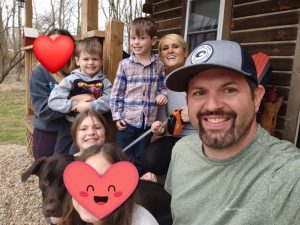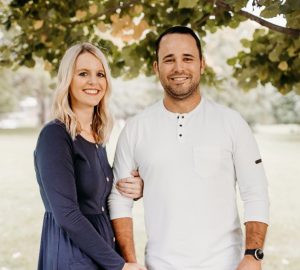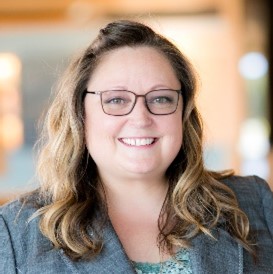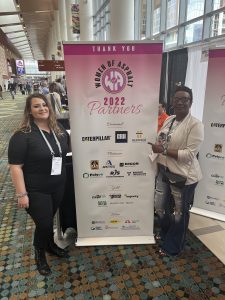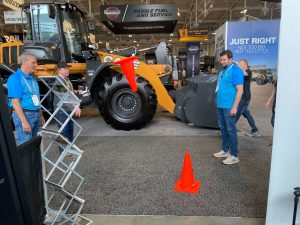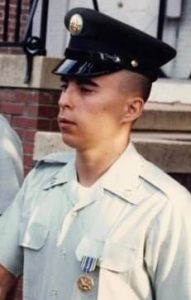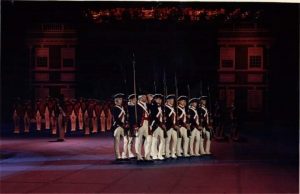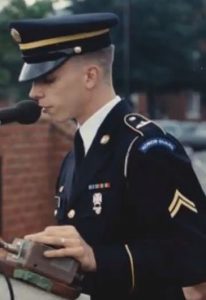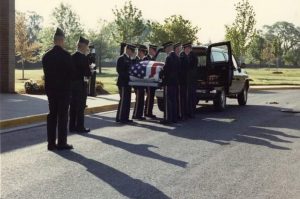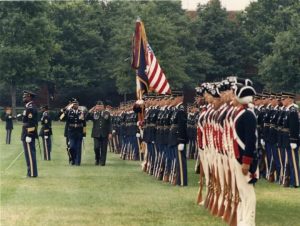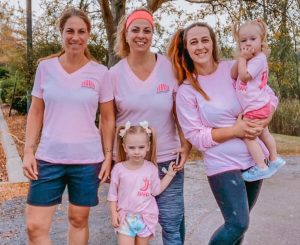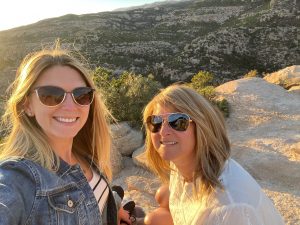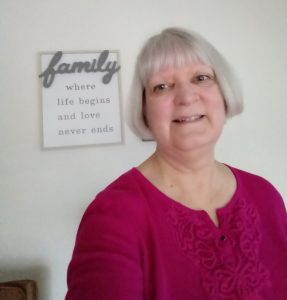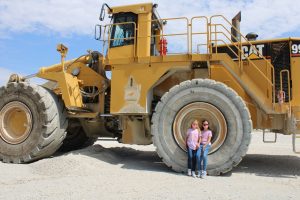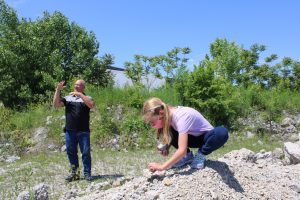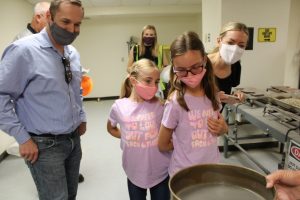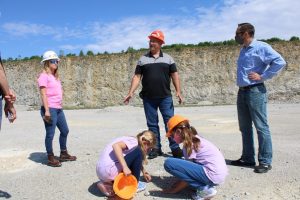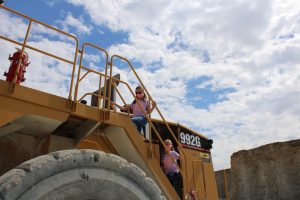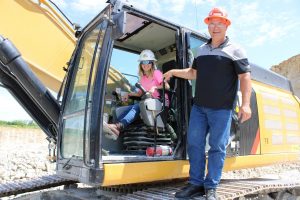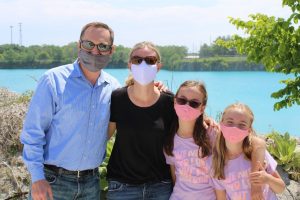Thousands of women are responsible for making The Heritage Group — and our world — work. We asked women across the Heritage family of companies about their career inspirations, their work in our industries and the future of women in the field. Their answers revealed so many reasons to celebrate the women of the Heritage family, only a few of which are below.
They power the work that connects our world.
“I started in the construction world at a young age working with my dad and have worked with other companies in the industry for five years. My mother (Deb Schriber) has been working with Milestone for 17 years now, so you could say she set an example for me. Working in the construction industry comes naturally.”
—Julie Schriber, Superintendent, Milestone Contractors
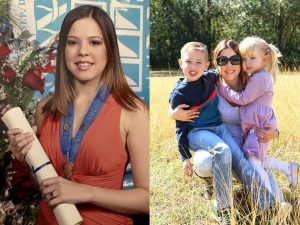
Maria Kraemer Gutierrez, pictured with her children Adrian, 7, and Amanda, 4
“I actually came to Tri-State Asphalt quite by accident. My husband was working at the plant as a manager, and they were in need of workers, and I came in to help him. I’ve been here for 19 years.”
—Lorraine Heffner, Lab Technician, Tri-State Asphalt. Before coming to The Heritage Group, Lorraine previously served in the military as a heavy equipment mechanic.
“In Venezuela, where I was born, oil was a big industry, but not a lot of women pursued that career. I wanted to do something meaningful and that I was really passionate about. The oil field was unstable, and I liked the specialty chemical manufacturing industry, so I wanted to explore career in that area. Ten years later, and now I get to make chemicals that are used for things like hand sanitizer during the pandemic, so you can see the impact more tangibly.”
—Maria Kraemer Gutierrez, Plant Manager, Monument Chemical. Maria taught Spanish and English in Thailand before becoming a Plant Manager at Monument Chemical.
They’re innovators.
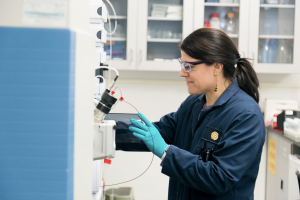
Andrea Moberly
“When I was in high school, no one ever talked about women’s scientific discoveries. Now our culture is becoming more aware of the importance of telling those stories, and as those are told, more girls are thinking, ‘this is a choice I could make for me, too’. If someone needs to do the work, why not me? If there’s work to be done, why not me?”
—Andrea Moberly, Senior Analytical Research Chemist, Heritage Research Group. Andrea’s interest in science was sparked during a childhood trip to Yellowstone National Park.
“I feel lucky, because working in Portage, it’s an almost completely female lab. We do have a lot of guys out in the plant. When you go to a conference or any kind of schooling, everyone has been very supportive, very welcoming and willing to listen.”
—Penny Jacobson, Technical Coordinator, Asphalt Technologies Group. Penny has been working at Asphalt Technologies for nearly 16 years.
“When I presented a business opportunity in Turkey to Heritage leadership, they said yes. The Heritage Group believed in the business, but more so, they believed in me. It doesn’t matter gender, ethnicity, background, culture, all that — if you create value and if you do the right thing, you have tons of opportunities.”
—Sibel Selcuk, Vice President of Global Research & Development and Strategy, Monument Chemical. Sibel started out at Heritage Research Group before establishing a startup in Turkey and then transitioning to Monument.
They’re pioneers in male-dominated fields.

Maly White (right) and Rebecca Rivers Duncan (left)
“I hear about the lack of women in the industry, but my experience hasn’t been the same. At my building, I’m surrounded by women in leadership roles who are skilled, intelligent—just the whole package. They have seats at the table where decisions are made, and it is just one more reason I am glad to be working here.”
—Maly White, Executive Assistant at Heritage Construction + Materials. Maly is an army veteran and serves her community on the board of Indianapolis’s PATH School.
“I learn even more by being part of Women of Asphalt, which is a nationwide initiative. It’s great to partner with women who have worked in the asphalt industry for 20 years; they might live in Los Angeles, but I have that resource. It’s good to be involved in things like that, especially when you’re new to the industry. That’s advice that I would give to any woman coming in: Get involved, ask questions, take advantage of the resources.”
—Rebecca Rivers Duncan, Business Administrator, Asphalt Materials, Inc. Rebecca is mother to Jada, a future Doctor of Veterinary Medicine; the two have three rescue dogs between them.
“Coming from a farm community and having strong women in my family, I didn’t have preconceived notions of women can’t do this or that. I think that has helped me the most. I love our workers, the dirt, and the work itself. I think the field employees realized I was there for them and cared and I haven’t had any major issues in the whole 25 years.”
—Amy Bingham, Senior Safety Representative, Milestone Construction
They support and encourage the next generation of women in the materials sciences.
“When I graduated over a decade ago, women made up only 10% of my civil engineering class. Since then, I have seen nothing but significant growth in the number of females applying for and pursuing careers in this industry.”
—Rachel Lockhart, Plant Manager, US Aggregates. Rachel followed in the footsteps of her father, who owned a construction company and masonry business.
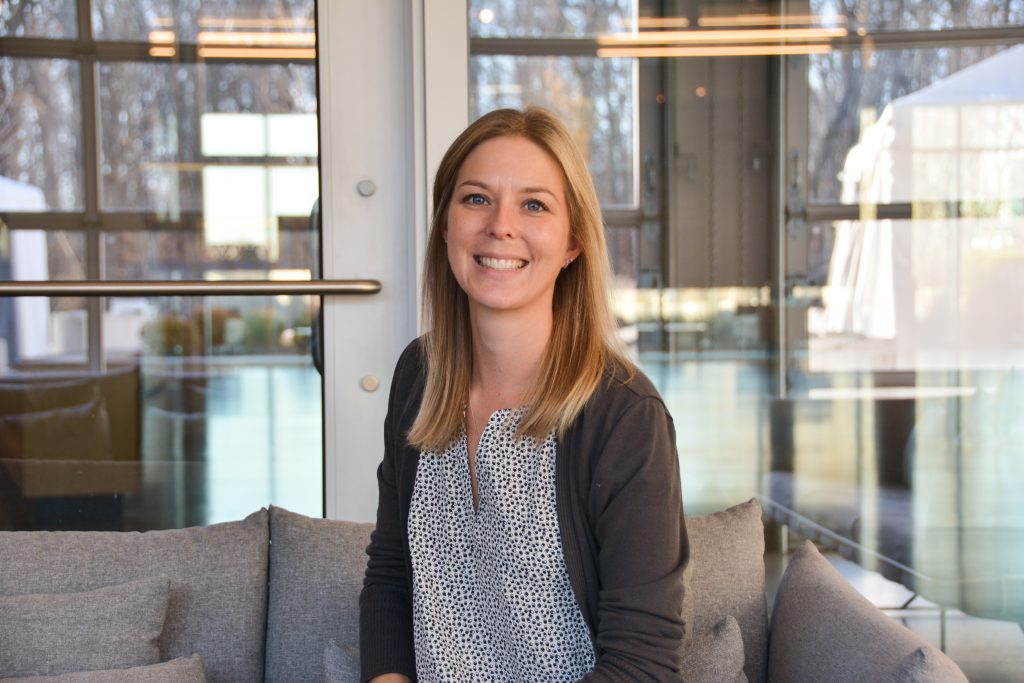
Kristin Sweeney
“The future is more than bright for women in the environmental industry, especially within Heritage. We have women in executive and leadership positions across the company. We have women in every type of position, from Drum Handlers to Senior Vice Presidents. If you look at any role within our company, you’ll see women working hard and excelling at what they do.”
—Raven Shyrock, Customer Experience Manager, Heritage Environmental Services. Over the past two years, Raven has leveraged her role to help clients meet COVID-related requirements for health and safety.
“When you do what you love and are passionate about it, it’ll show. Jump in! Find a mentor (a man or a woman) who will help you through the challenging times and celebrate your accomplishments with you. I think girls should also know that the construction industry of today is not the same as it was 20 or 30 years ago. Technology has come so far that we have a variety of roles to suit everyone!”
—Kristin Sweeney, Director of Operations, US Aggregates. Kristin got hooked on the mining industry during a summer internship in 2004.
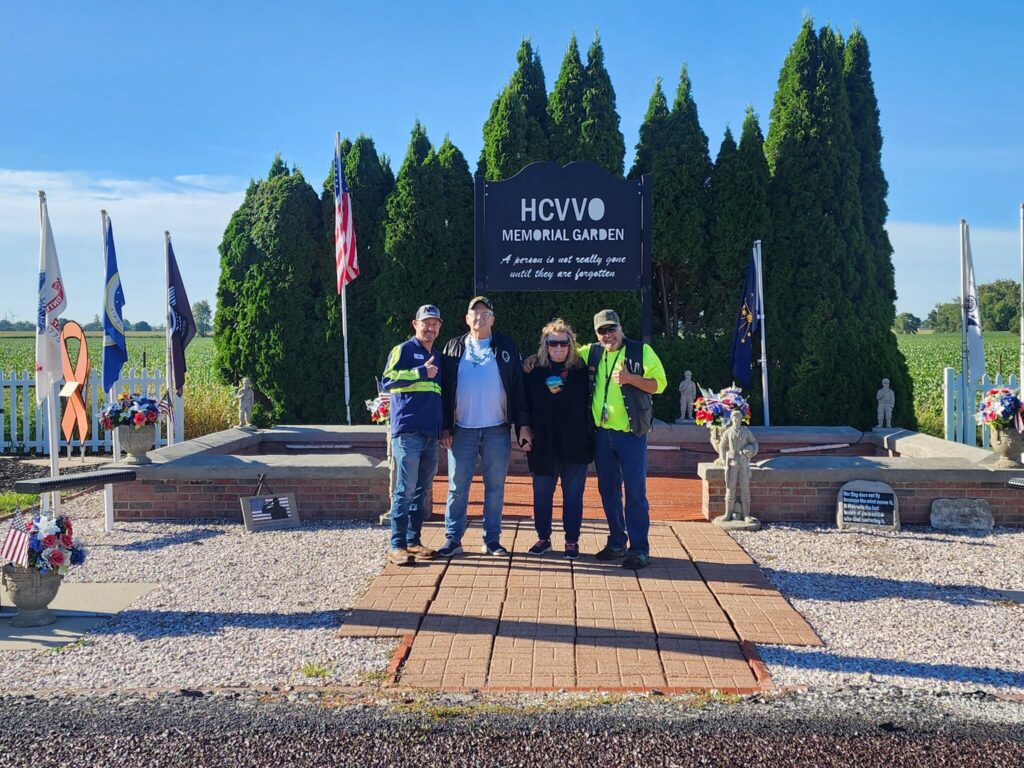
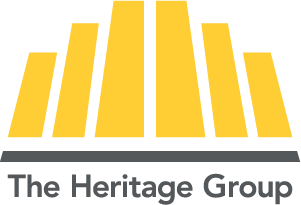
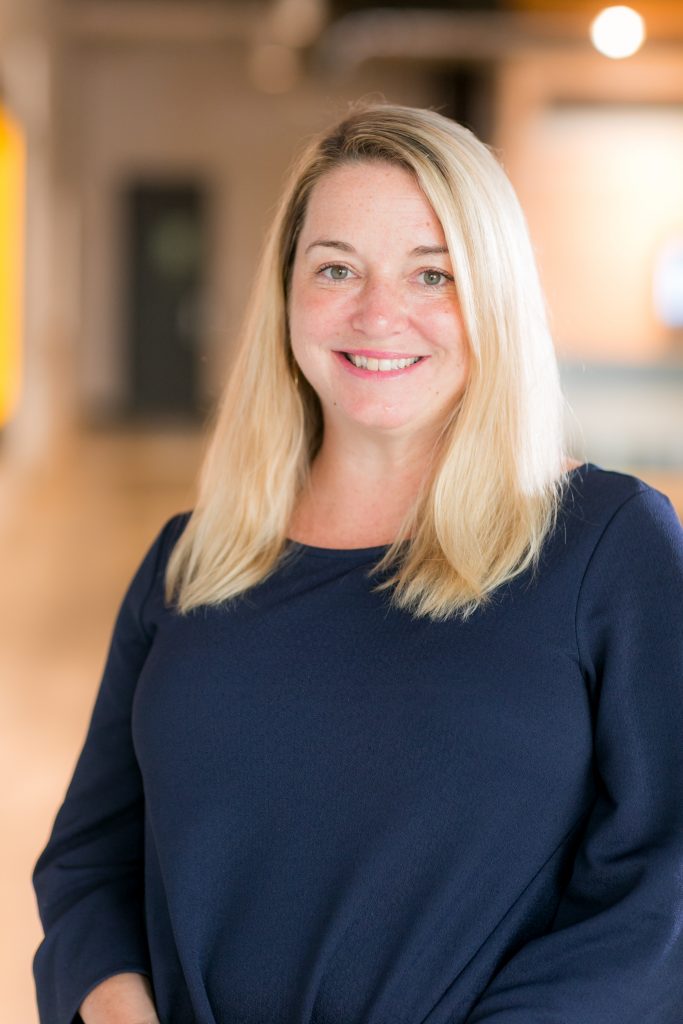 This career shift sent Liz on a path in which she often found herself as the only woman operating within male-dominated industries. Liz leaned heavily on her upbringing and ability to connect with everyone. She noted, “My dad worked in construction and has always been a source of good advice.” That guidance includes being well-versed in the language of construction, over-preparing, and meeting people on their turf. “I learned early on that in order to gain trust and respect, I had to take as many face-to-face meetings as possible,” remarked Liz.
This career shift sent Liz on a path in which she often found herself as the only woman operating within male-dominated industries. Liz leaned heavily on her upbringing and ability to connect with everyone. She noted, “My dad worked in construction and has always been a source of good advice.” That guidance includes being well-versed in the language of construction, over-preparing, and meeting people on their turf. “I learned early on that in order to gain trust and respect, I had to take as many face-to-face meetings as possible,” remarked Liz.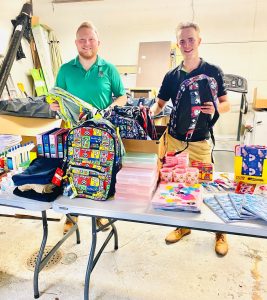
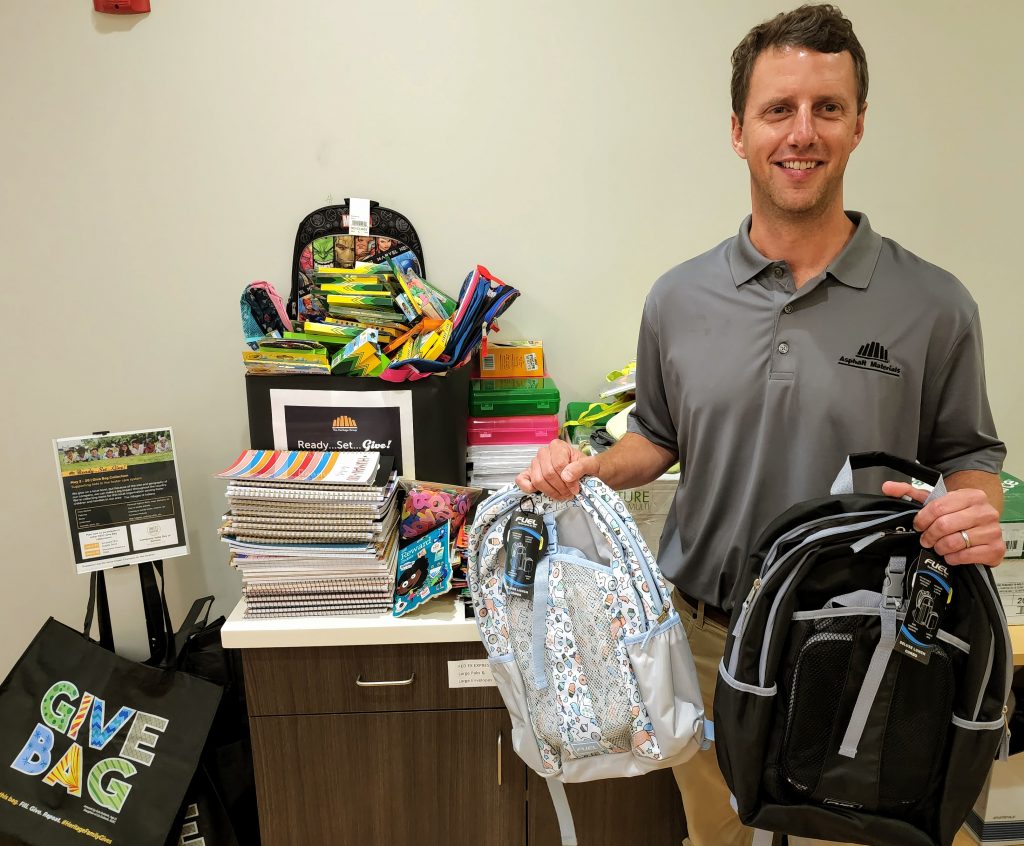
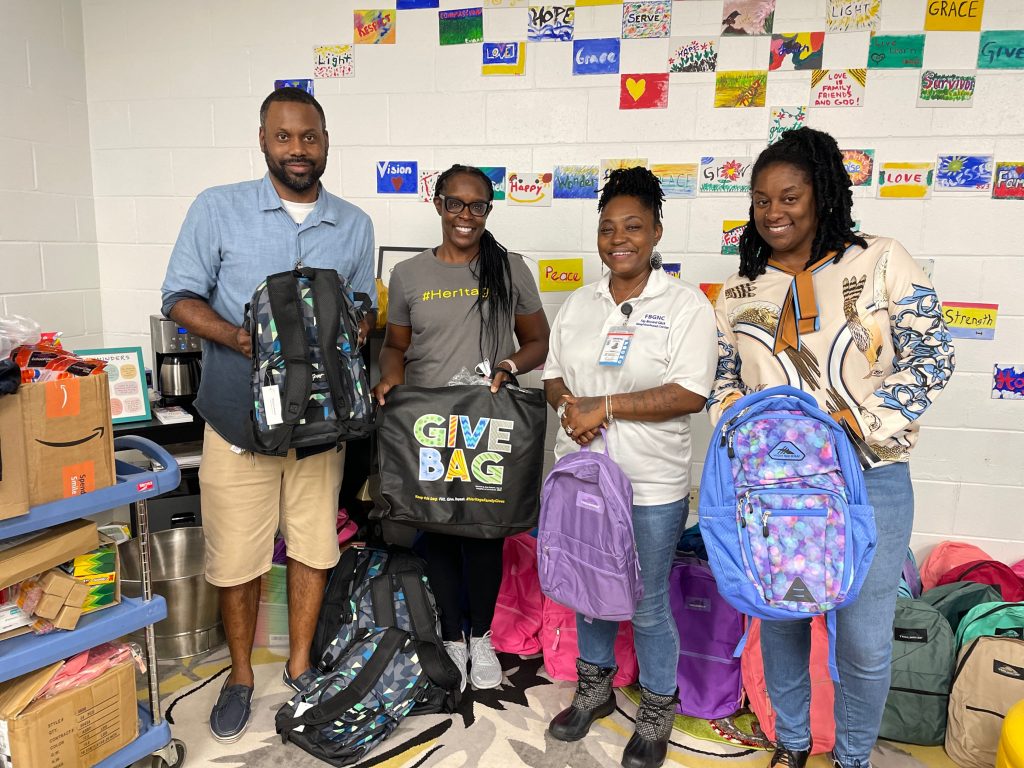
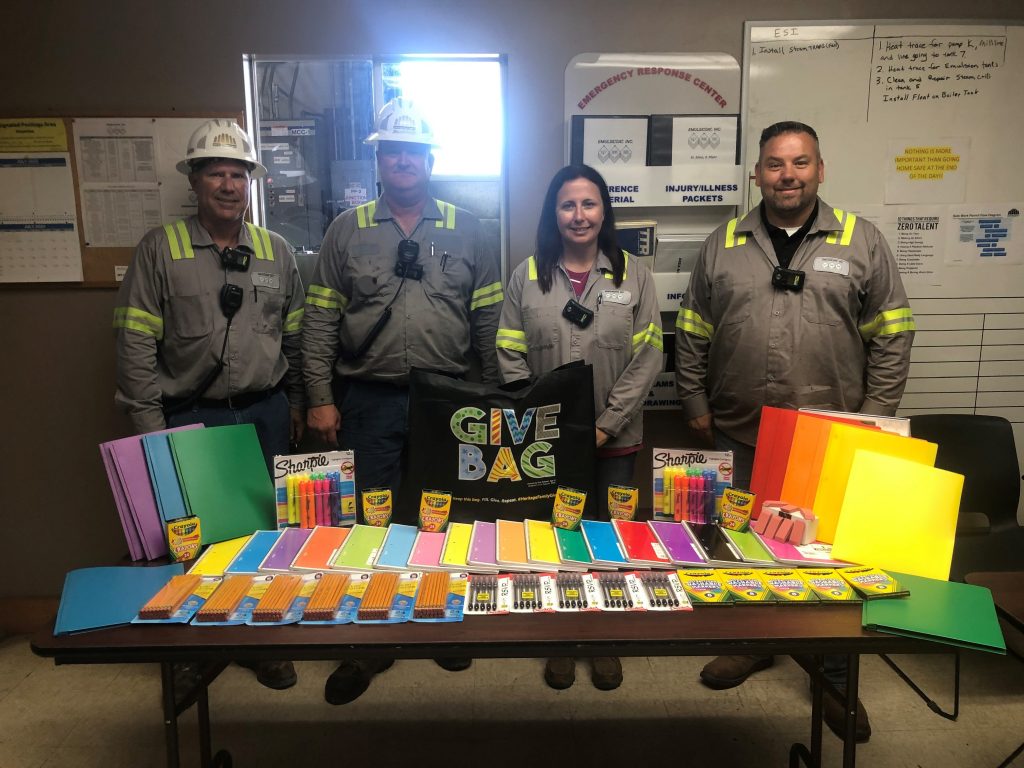

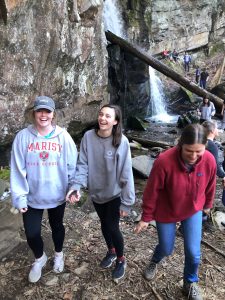
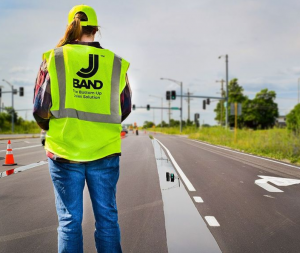
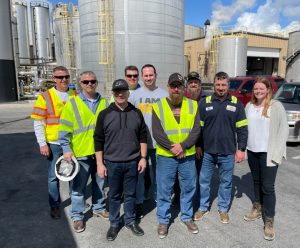
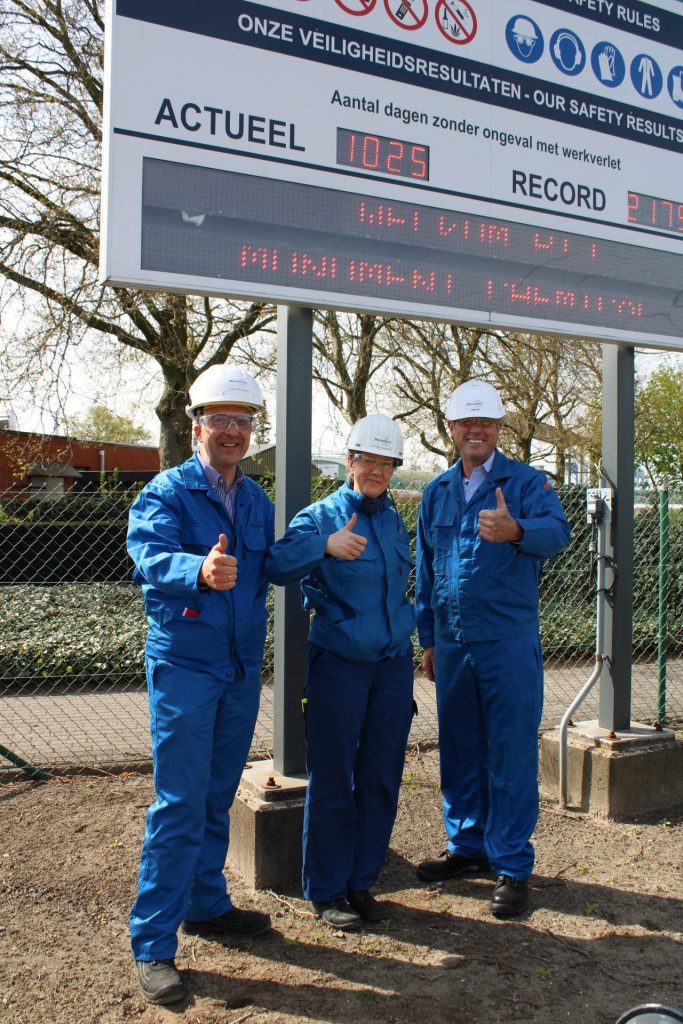
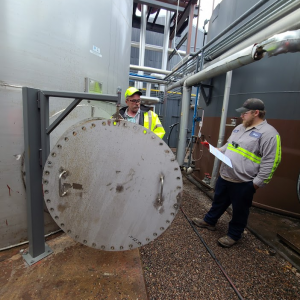
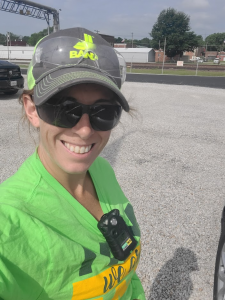
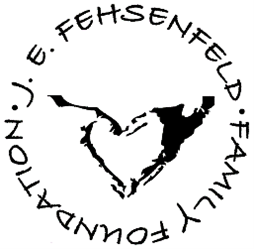 Lisa Ziemba, President, J.E. Fehsenfeld Family Foundation shared, “I’m excited to see The Heritage Group companies supporting an issue that is so important to the family foundation. For many years, JEFFF has provided regular support to a variety of foster care organizations across the country.”
Lisa Ziemba, President, J.E. Fehsenfeld Family Foundation shared, “I’m excited to see The Heritage Group companies supporting an issue that is so important to the family foundation. For many years, JEFFF has provided regular support to a variety of foster care organizations across the country.”